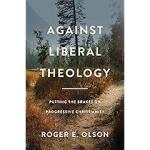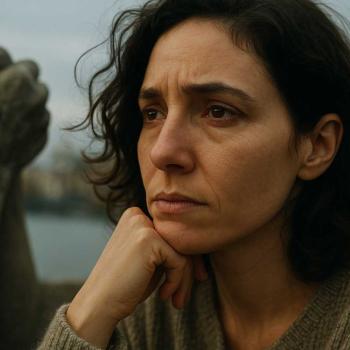Several weeks ago, my priest began his homily with the statement that there are four things that every Christian believes: death, heaven, hell, and judgment.
What happened to taxes? I thought. Oh well, one-and-a-half out of four ain't bad.
I turned and beheld my daughter, who is now six.
She was fumbling with her sweater sleeves, and I couldn't quite tell whether she was paying attention to the message. On the ride home, I realized she had absorbed every word. But the message hadn't terrified her, as perhaps it might have some children—although she was curious what "judgment" meant. We had already had "the afterlife talk."
I try to refrain from judging the childrearing methods of others, but I really cringe when parents use sloppy metaphysical metaphors with their children, such as: "Grandma went to heaven in an airplane." (By the way, no parent ever says, "Uncle Drew went to hell in an AMC Pacer.")
My daughter first "encountered" death at the age of two. We discussed the fact that the wasp in the windowsill was in fact not taking a nap. It had "died," its life force removed. Life is a system of puzzle pieces that fit together, I explained, and when one of the puzzle pieces fails, the puzzle ceases to be.
She cried. I don't blame her. I cried too. Death is a whopper to face for the first time. But we braved it together. Honestly.
Not long thereafter, my daughter's great-grandmother died. But rather than paint a Hallmark card of pearly gates and gold-paved boulevards with Malibu mansions as Great-Grandma's next stop on the Mobius Metro, I determined to set a proper foundation for my daughter's lifelong belief in the afterlife. I'm glad I did, as someday I will have to explain to her that the Tooth Fairy, Santa Claus, and the Easter Bunny were myths (lies) I perpetuated, but I will not have to apologize about how I first cast the Great Beyond.
I told her everything there is to say about life after death: "When a person dies, he or she returns to God. We cannot know what that experience is like, but I would like to imagine that it is a kind of peace and joy that is so wonderful it is beyond words. And so, we don't have to feel sad for the person who is gone—though we may feel sad because we miss him or her so, for a time."
"Does everybody go there?" she asked.
"Where else is there to go?" I replied.
Granted, my philosophy of the afterlife is abstract. But my daughter was able to grasp the notion that things beyond human experience cannot be described with human words. (I think of this as a branch of apophatic theology.) Children are smarter than we think.
Our father-daughter conversations about death and the afterlife have established a foundation of Christian living that is not basedon avoiding hell and earning heaven. I'm not taking about general Chutes & Ladders, merit-based soteriology. Catholics and Protestants might differ with respect to the machinations of salvation, but at the end of the day, both parties could sign a treaty on the Let's Make a Deal, two-door concept of Heaven and Hell.
Yet I am convinced that life is not a game show.
We follow Christ's teaching for the sake of doing good. Because doing good is the right thing to do. Not because life is a video game, and we're in search of a next level that doesn't include a lava lake panorama.
Last winter, on a drive to Myrtle Beach—which some might consider the very dictionary definition of hell—my daughter determined of her own accord that Satan and Hell are absurd concepts. I owe this to a run-through of Jesus Christ Superstar. (The Lord works in mysterious ways.) She asked me to explain what this idea of "the devil" and "Hell" were. I explained the concepts without projecting my own personal beliefs. She opined—in her own words—that human beings were sufficient agents of "doing bad" and didn't need any help along the way. Actually, she laughed at the tale of Lucifer the fallen angel and further found the idea of a God who makes a soul suffer for all eternity simply incomputable.
I wish I had had such wisdom at her age. It would have saved me decades of being bogged in a Dantean bolgia of guilt and fear.
Instead, when I was a child, I fell asleep most nights with the dread-inspired images of a Christian tract called "This Was Your Life" playing in my mind's eye.
I literally prayed myself to frenzied sleep that when God "replays the movie of my life" on Judgment Day—because everybody knows that Jehovah enjoys a good silver screen showing of a soul's terrestrial walk—my name would be found in the Book of Life. So many evenings, I awoke in sweaty terror from dreams of the Angel of Judgment standing on a square platform, pitching my soul into the Lake of Fire.




